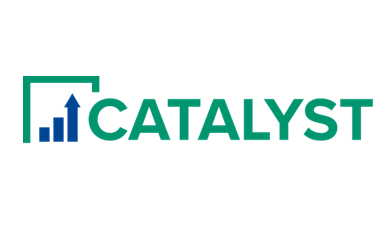Top ERP products for construction include Viewpoint Vista, Jonas Enterprise, and Procore. This software platform is best for contractors seeking detailed bids from subcontractors and net lease capital advisors vendors to have the most comprehensive preproject data. See if you’re on track with the report designer that allows you to customize construction reports and financial statements.
Sage 100 Contractor (3 stars)
Now you should have a better idea of the construction accounting software options on the market, and hopefully you’re a little closer to finding the software tool that’s the best fit for your team. There are a few unique benefits that construction accounting software offers over general-purpose accounting software. Most construction accounting software on the market is intended to supplement, rather than replace, your existing accounting software. So first and foremost, it’s important to understanding the cost of bookkeeping for small businesses make sure that the option you choose will work with the accounting and finance tools you’re already using.
General accounting software encompasses popular, non-sector-specific solutions like Xero and QuickBooks. This software offers a range of features to manage accounting tasks efficiently. In this article, we’ll explore some of the best construction accounting software on the market today, highlighting features you should be looking for and advise on how to choose the best-fit for your business. Standout features include correspondence management tools—from specific project instructions to general day-to-day correspondence. Communication is key in any business, and busy construction jobsites are no exception. Our Construction Technology Trends report found that job costing was the second most desired feature in construction software, with 72% of buyers saying it must be included in their ideal solution.
Is construction accounting software secure?
The software also tracks and manages project costs, budgets, inventory, and resources. Features that make it stand out include daily logs, project scheduling, and job costing, allowing for seamless integration between the field and back office for reliable decision-making. Jonas even includes features to help manage your equipment and inventory, as well as documents and reports. Construction accounting software is any kind of online accounting solution that works for businesses in the construction industry. Exact features and specifics can vary, but it normally offers reporting, tax preparation, invoicing, and payroll tools. As one of the most popular types of accounting software for a construction company, many in the industry use QuickBooks for their needs.
- For instance, software might have dozens of listed accounting features, but only a few are useful for construction-related tasks.
- We dug into 14 of the top construction accounting software platforms on the market and found these 10 to be the best.
- The Advanced plan starts at $499 for the first months, then increases to $799 per month.
- A construction accounting solution will focus more on reporting, financial statements, and job costing.
- Additionally, Vista users can access Viewpoint Analytics to visualize construction data like daily logs, RFIs, and submittals.
QuickBooks
As an ERP, smaller businesses or start-ups will likely be unable to justify the larger upfront cost of such a system. Foundation Software is a great choice for construction professionals who spend a lot of time on-site. With a great mobile app for on-the-go updates and reporting, access everything you need from anywhere. Foundation Software is one of the leading accounting systems in the US construction market. Providing its software in packaged modules, businesses are free to choose the solutions that are best fit for their needs, tailoring their own tech stack in the process. Financial software designed for construction can offer project-based budgeting and reporting functionalities tailored to the unique needs of construction projects.
If you don’t want to make the annual commitment, the cost is $249 per month. This could business performance report: what is it and how to write it lead to companies spending high amounts of revenue on software they can’t fully leverage or benefit from. Construction companies not only have to manage their own teams but also ensure they have a clear oversight on any subcontracted work.
Most expense tracking in the construction industry is done via job costing. This method of accounting tracks income and expenses along with the job they relate to. Job costing is most effective when conducted by your construction accounting software.
With a range of packages and services to choose from, this flexible, cloud-based program helps take the stress and hassle out of accounting for your construction business. Sage 300 Construction’s project management capabilities are also worth mentioning. It maintains everything from contracts to subcontracts, change orders, and communications. Finally, its accounting features span AR, AP, general ledger, job costing, and payroll.
Run your construction business with more automation, better tracking, and deeper insights from QuickBooks. To stay up-to-date on what’s happening in the construction industry, sign up for our newsletter to get the latest news and business insights from industry experts. I made a point of looking for software with plenty of keyboard shortcuts, quick-menus, and other ways to speed up data input so your team can work more efficiently. Here’s my assessment of each piece of software that I chose for this list—plus what I think each one does best and what sort of construction company it’s best suited for. Jason Ding is a seasoned accountant with over 15 years of progressive experience in senior finance and accounting across multiple industries. Jason’s firm, Notion CPA, is an accounting firm with a business-first focus.
